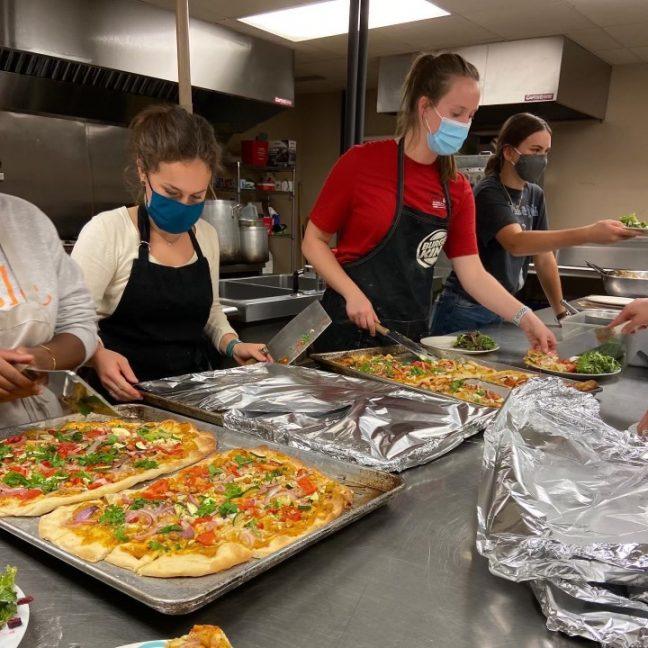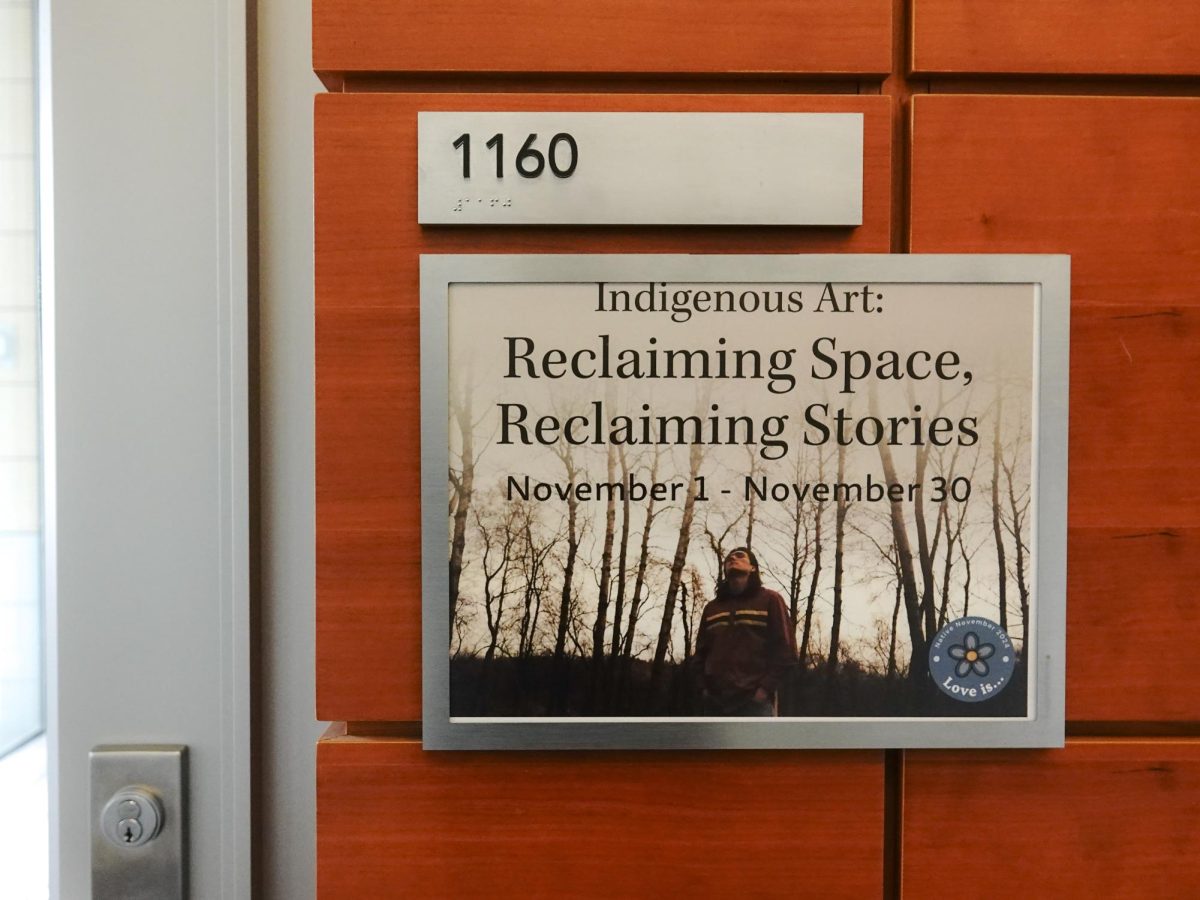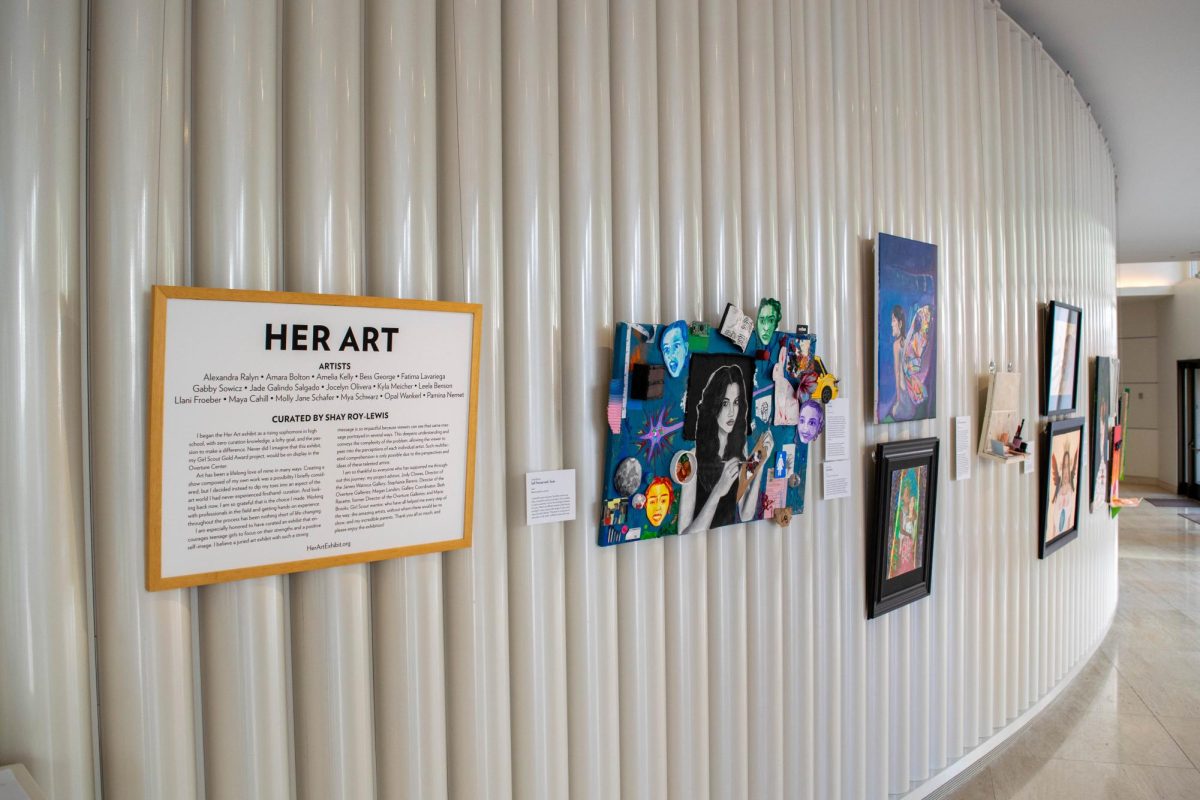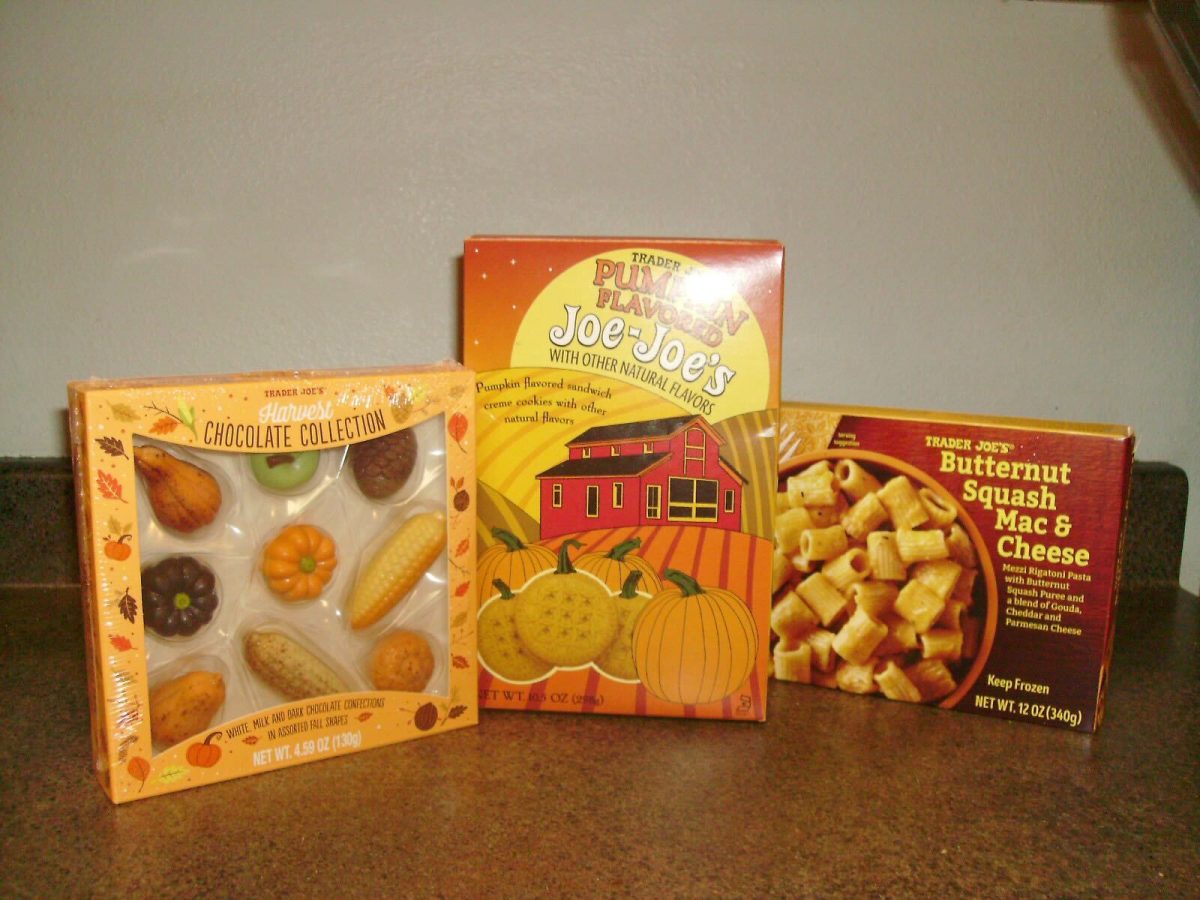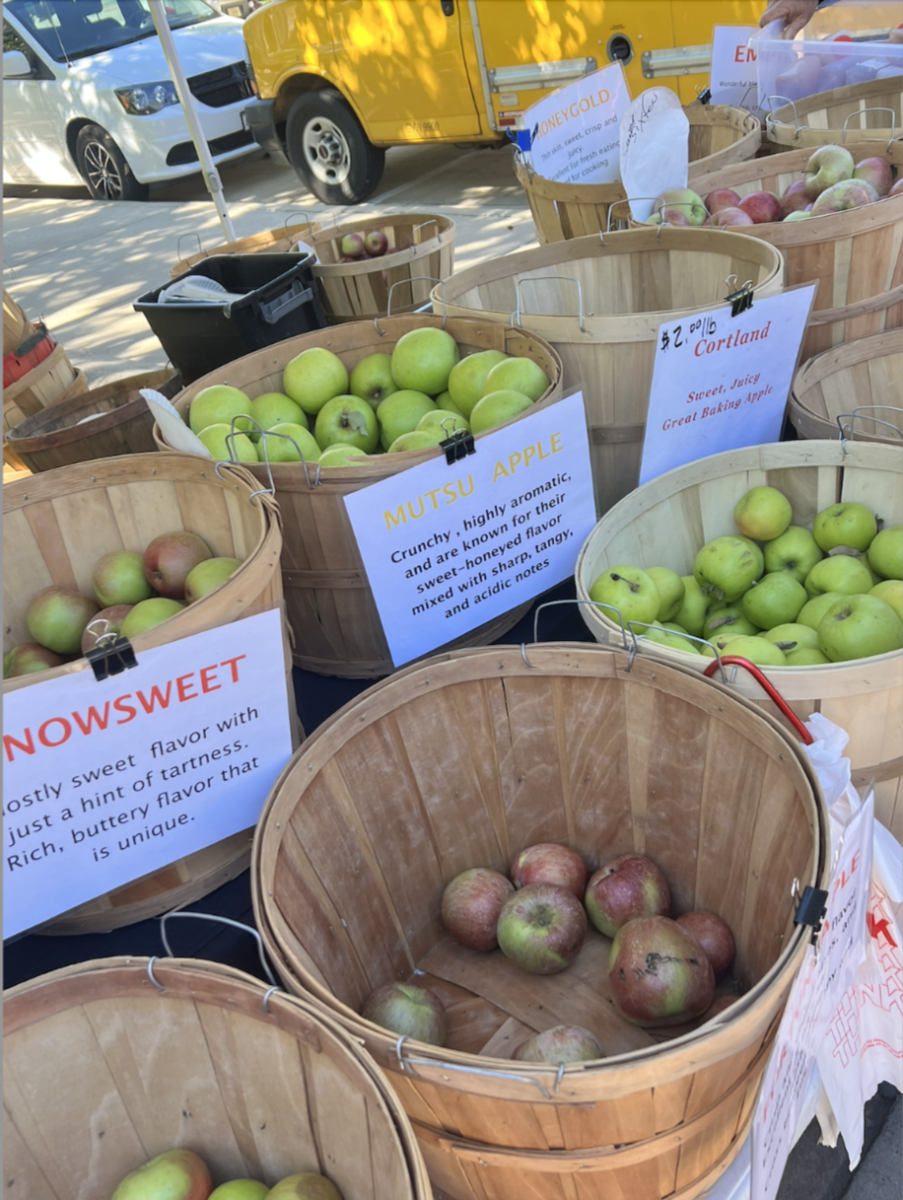Slow Food is one of a few food assistance student-run organizations at the University of Wisconsin, with a mission of providing good, clean and fair food for all members of the community.
Slow Food UW started in 2011 and has been a powerful and transformative underground community since. Though the organization took a hit during the past two years with the pandemic, Gwen Kelley and Emma Hamilton, upperclassmen students who serve as the co-directors of Slow Food UW, say the organization is back and better than ever before.
The term ‘slow food’ counteracts ‘fast food’, hence why the snail has come to represent their initiative. They prioritize the careful preparation of food with ethically sourced ingredients.
Each week, Slow Food UW puts on two homemade meals, with the freshest of ingredients, that are available starting at $5 and ranging to about $8 total. The meals take place in the basement of the Christian campus ministry on University Ave and the corner of North Charter Street at The Crossing.
Meals made by the organization are intended to be eaten slowly for maximum enjoyment — something our fast-paced, modern society tends to forget. And the dedication to their initiative is apparent in everything the slow foodies do.
Madison Public Market hopes to build on present farmer’s market scene in Madison
Family Dinner Night was the first chapter of Slow Food UW and started out as a monthly event. It has quickly expanded to either a weekly or bi-weekly gathering on Mondays, beginning at 6:30 p.m.
Designed to show students that they can eat good, local foods affordably, Family Dinner Nights are a modern approach to the dwindling family dinner tradition. There is a ritualistic sense of beauty to watch some hundred students and faculty all sitting down at the same time to be served a meal made with love. Family Dinner Night is a three, or sometimes four, course meal featuring a starter or a side plus an entrée followed by dessert.
Hamilton said they usually sell out pretty quickly, which is why it is encouraged to come early — and hungry.
“It is unfortunate when people come and we can’t serve them, but running out of food is a good problem to have,” Hamilton said.
Café Meals are a lunchtime-geared meal served from 12 p.m. to 2 p.m. on Wednesdays. Given the central location, it provides the opportunity for students to pop by in between classes. They are also a three-course warm meal and are typically paired with kombucha from the Willy Street co-op.
‘I can’t eat!’ UW students, organizations reckon with ending hunger at UW
Wednesday Café Meals serve fewer people than Family Dinner Night, with the goal of making money, hence the a-la-carte method. Items are priced individually, which in the end contributes to a profit being generated, unlike the breakeven Family Dinner Night feasting.
Each meal offers veg and gluten-free options for those with dietary restrictions. Kelley said it has been part of their mission for a while to provide consumers with options that are catered towards them since they do not want to discourage anyone from attending.
On the topic of meat, not serving it is both more sustainable and more affordable. That’s why the meat they have used in the past has usually been donated by chefs Slow Food has collaborated with. Nevertheless, meat is still a rare sight to see in a Slow Food meal.
Do not worry if you are unable to make it for a sit-down meal at The Crossing, because Slow Food UW offers a takeaway option. The became the main method of mealtime for the group during COVID-19 last year. It is highly recommended individuals bring their own takeout container — otherwise, it is an additional $1 charge.
Mass producing food is not only a time-consuming task but an expensive and intricate one. Menus are often planned a week in advance, and prep occurs both the day before and the day of mealtimes. All ingredients are locally sourced, so you really are getting a healthy deal while supporting a great cause.
Directors work together with interns and the sourcing team to create the menus in a collaborative process in which members thoroughly talk through ideas beforehand and look for recipes before multiplying the quantities needed to scale up to size. Directors of the respective meals will plan their menu then transcribe it to work with a supplier based on what they need and how much they need.
“We work together every week to plan out what is good and affordable,” Hamilton said. “It is a fun puzzle to see what you can make with what you are given, and bouncing ideas off each other about what to make that is available locally and in season.”
Sourcing for ingredients is mainly accomplished on Saturdays and is largely sourced from the Farmers’ Market, where the team tries to get as much produce as they can.
Whatever cannot be found is supplemented by the co-op or the Monroe Street Farmers Market on Sundays. But budgeting comes with its own risks as it is very hard to plan a meal to be an exact price point. Kelley said communication is key because ingredients sometimes need to be switched out for more affordable options.
“It’s not a perfect science, which is why we have people look over our menus,” Kelley explained. “An instance that comes to mind is when we were making a risotto last year and [had] calculated how many mushrooms we would have needed. It ended up being like $400 just for the mushrooms.”
Allen Centennial Garden adopts sustainable practices amid pandemic
One of the most important factors about Slow Food’s accessibility is its Pay It Forward program. The organization never wants costs to stand in the way of providing someone with a good meal, so customers can make donations that will directly benefit the community for only a few additional dollars. Anyone can ask a cashier for a Pay It Forward meal absolutely free of charge with no further questions asked.
The money donated for the Pay It Forward program goes into its own reserve and will always be available upon request. Food insecurity is a widely experienced problem that Slow Food intends to combat, it is an area of communication they aim to do more for since it is ingrained in their mission statement.
There are many ways to get involved with Slow Food UW, but a good first step is to be a volunteer first. Kelley said this is how most students get their start before applying for the internship position.
If you have yet to attend a Family Dinner Night or Café Meal, you are surely missing out on some deliciously cheap and locally sourced foods. It is the perfect opportunity to experience the fresh ingredients Madison’s convenient proximity to farmland offers.


